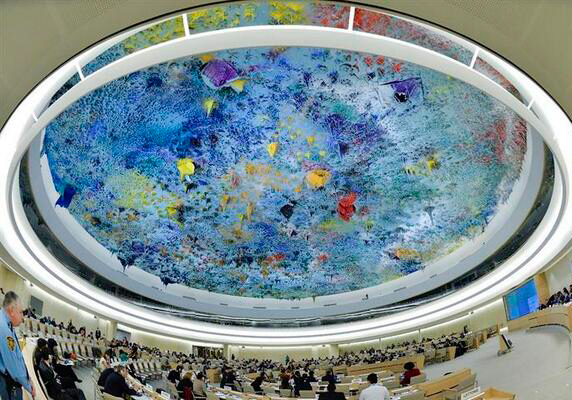
Mar 15, 2018 | Advocacy, Non-legal submissions
The ICJ today spoke at the United Nations on impunity and the situation for human rights in Peru.
The oral statement was made during the discussion at the Human Rights Council of the Universal Periodic Review outcome for Peru. It read as follows (translation from the original Spanish):
“Mr President,
The International Commission of Jurists (ICJ) recognizes the progress made by the Peruvian State in the field of human rights and its openness in relation to the recommendations made in the current cycle of the Universal Periodic Review.
The ICJ regrets, however, that the investigation and punishment of those responsible for the serious human rights violations that occurred during the internal armed conflict have not received the attention they deserve. On the contrary, the fight against impunity has receded with the granting of pardon and presidential grace to former president Alberto Fujimori who was serving a prison sentence for a series of crimes against humanity committed during his term. The presidential grace grants immunity from investigations and prosecutions in course or to be opened in the future.
One of the recommendations (111.97) that Peru accepts with qualifications refers to investigations and reparations to the thousands of women who suffered forced sterilization during the Fujimori administration. The measures of pardon and grace granted would exonerate Fujimori from investigation and punishment for this and other serious crimes. The ICJ urges the Peruvian State to implement the recommendations of the international community with full respect for international standards that prohibit impunity for serious violations of human rights.
Thank you Mr President.”
The ICJ oral statement complements a related written statement by the ICJ at the session.
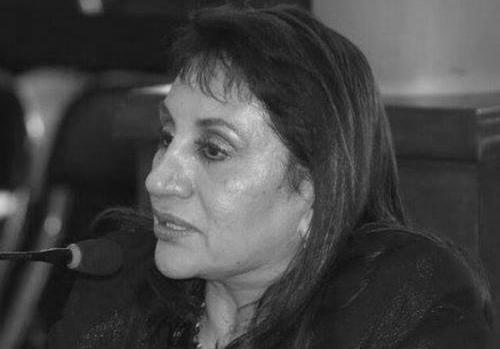
Feb 16, 2018 | News
The ICJ strongly condemns the attack against the Deputy Prosecutor for Human Rights, Sonia Elizabeth Montes Valenzuela, carried out on 15 February by unknown gunmen in the central Zone 1 of Guatemala City.
Sonia Montes was on her way to work at the Public Prosecutors Office when two gunmen on motorbikes drove past and fired six bullets into the car.
Fortunately both Sonia Montes and her driver, Néstor Valdes Antonio, were unharmed.
“This is a vile attack against the justice system in Guatemala and the whole human rights movement in the country. These types of attacks seek to destabilize democracy and the rule of law,” Ramón Cadena, the ICJ Director stated.
“We call on President Jimmy Morales to carry out a full and impartial investigation in order to identify the material and moral authors of these acts,” he added.
The ICJ also expresses its solidarity with the families of the victims of the attack and with the Attorney General, Thelma Aldana, and the Commissioner of the International Commission against Impunity (CICIG), Iván Velásquez.
The Public Prosecutors’ Office and the CICIG are working tirelessly to investigate crimes and to end impunity and corruption in Guatemala.
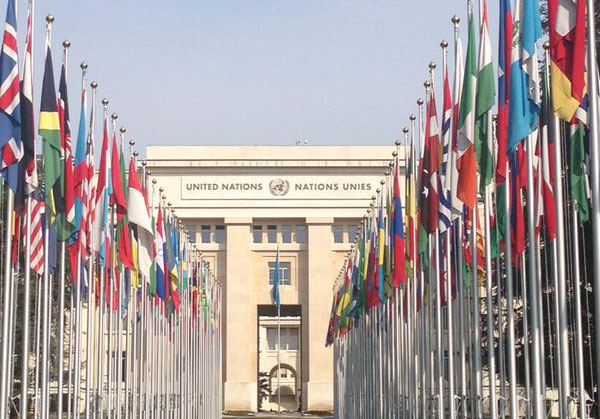
Jan 31, 2018 | Advocacy, Non-legal submissions
The ICJ submitted a written statement on impunity and transitional justice, ahead of the March 2018 session of the UN Human Rights Council.
The written statement can be downloaded in PDF format below:
In English: UN-HRC37-WrittenStatement-NepalPeruImpunity-EN
In Spanish: UN-HRC37-WrittenStatement-NepalPeruImpunity-ESP
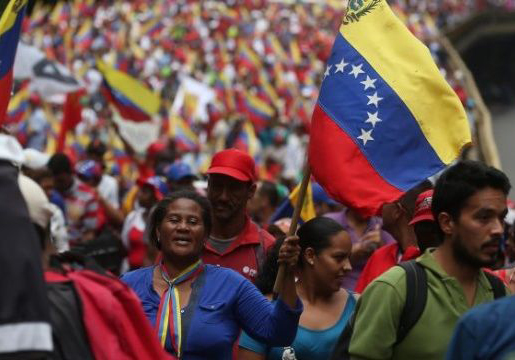
Oct 5, 2017 | News
The ICJ calls for Venezuela to accept long-standing requests for country visits by UN Special Procedures whose mandates are most relevant to the rule of law and human rights crisis in the country.
The ICJ takes note of the announcement by the Venezuelan Government that it is inviting the UN Independent Expert on the promotion of a democratic and equitable international order, Mr. Alfred de Zayas, to visit the country.
This announcement, together with a recent invitation to the Special Rapporteur on the right to development is significant. For more than a decade, the Venezuelan Government has denied or left unanswered requests for visits to the country by numerous other of the independent experts (known as “Special Procedures”) of the United Nations. The last mission to Venezuela by a special procedure was the Special Rapporteur on Torture in 1996.
However, the breakdown of the rule of law and the extremely serious human rights situation in Venezuela make visits by other United Nations Special Procedures of urgent relevance.
“In the course of this year, extrajudicial and arbitrary executions, torture and ill-treatment of detainees, arbitrary detention, trial of civilians by military tribunals, and persecutions and attacks against opponents, dissidents and human rights defenders have become systematic and generalized practices in Venezuela, said Federico Andreu Guzman, ICJ South America Representative.
“It is therefore difficult to see why the Government of Venezuela would not respond to long-standing requests from Special Procedure mandates relevant to these violations in favour of proactively inviting other UN experts”, Andreu Guzman added.
The ICJ therefore calls on the Government of Venezuela to invite to visit the country the Working Group on Arbitrary Detention and the Special Rapporteurs on extrajudicial, summary or arbitrary executions; the independence of judges and lawyers; torture and other cruel, inhuman or degrading treatment or punishment; the rights to freedom of peaceful assembly and association; the promotion and protection of the right to freedom of opinion and expression; and on the situation of human rights defenders. All of these UN experts have long-standing requests to visit Venezuela, some for many years, which the Venezuelan Government has failed so far to accept.
“Under the Charter of the United Nations, Member States have the obligation to cooperate with the UN Special Procedures on human rights. This duty is of particular importance when the State is a member of the Human Rights Council, as is the case with Venezuela”, said Andreu Guzman.
The ICJ also calls on the Government of Venezuela to accept the request for a visit to the country that, since 2004, has been repeatedly issued by the Inter-American Commission on Human Rights.
Background
For several years, the following Special Procedures of the UN Human Rights Council have made requests to visit Venezuela: the Special Rapporteur on extrajudicial, summary or arbitrary executions; the Special Rapporteur on the situation of human rights defenders; the Working Group on Arbitrary Detention; the Special Rapporteur on the independence of judges and lawyers; the Special Rapporteur on the rights to freedom of peaceful assembly and association; the Special Rapporteur on violence against women, its causes and consequences; the Special Rapporteur on torture and other cruel, inhuman or degrading punishment; the Special Rapporteur on the promotion and protection of the right to freedom of opinion and expression; the Working Group on the issue of human rights and transnational corporations and other business enterprises; the Special Rapporteur on adequate housing as a component of the right to an adequate standard of living; and the Special Rapporteur on the right to food.
At the regional level, although it denounced the American Convention on Human Rights in September 2012, Venezuela is still a State party to three Inter-American human rights treaties (Inter-American Convention to Prevent and Punish Torture; Inter-American Convention on Forced Disappearance of Persons; and Inter-American Convention on the Prevention, Punishment and Eradication of Violence Against Women). However, Venezuela has systematically ignored recommendations of the Inter-American Commission on Human Rights (IACHR) and has also denied IACHR requests to visit the country, made since 2004.
Contacts
Federico Andreu-Guzmán, ICJ South America Representative, tel: +57 311 481 8094; email: federico.andreu(a)icj.org
Carlos Ayala Corao, ICJ Commissioner (Venezuela), tel: +57 414 243 4872; email: cayala(a)cjlegal.net
Alex Conte, ICJ Global Redress and Accountability Initiative, tel: +22 979 3802; email: alex.conte(a)icj.org
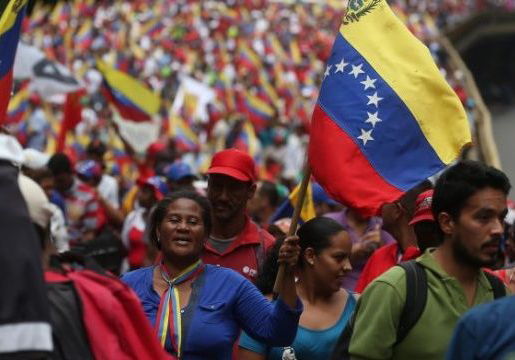
Oct 5, 2017 | Comunicados de prensa
La CIJ hace un llamado a Venezuela a que acepte las solicitudes de visitas al país que han formulado, desde hace varios años, los Procedimientos especiales de las Naciones Unidas, cuyos mandatos son más relevantes para el Estado de Derecho y la crisis de derechos humanos.
La CIJ toma nota del anuncio del Gobierno de Venezuela de invitar al país al Experto independiente sobre la promoción de un orden internacional democrático y equitativo de las Naciones Unidas, Sr. Alfred de Zayas.
Este anuncio, así como él de invitar al país al Relator Especial sobre el derecho al desarrollo, resulta significativo. Por más de una década, el Gobierno venezolano ha denegado o dejado sin respuesta las solicitudes de visita al país de numerosos Expertos de las Naciones Unidas (conocidos como “Procedimientos especiales”). La última misión realizada a Venezuela por un Procedimiento especial, fue la del Relator Especial sobre la Tortura en 1996.
Sin embargo, dada la ruptura del Estado de Derecho y la gravísima situación de derechos humanos en Venezuela, se requiere urgentemente que otros Procedimientos especiales de Naciones Unidas, con un mandato relevante, realicen misiones en el país.
“En el curso de este año las ejecuciones extrajudiciales y arbitrarias, la tortura y malos tratos a detenidos, la detención arbitraria, el juzgamiento de civiles por tribunales militares y las persecuciones y ataques contra opositores, disidentes y defensores de derechos humanos se han convertido en prácticas sistemáticas y generalizadas en Venezuela”, declaró Federico Andreu-Guzmán, Representante para Suramérica de la CIJ.
“Por lo tanto, es difícil entender por qué el Gobierno de Venezuela no responde a las solicitudes formuladas desde larga data por los Procedimientos especiales con mandatos sobre estas violaciones, mientras invita de forma proactiva a otros Expertos de las Naciones Unidas”, agregó Andreu-Guzmán.
La CIJ hace, por lo tanto, un llamado al Gobierno de Venezuela a que invite a visitar el país al Grupo de Trabajo sobre la Detención Arbitraria y a los Relatores Especiales sobre ejecuciones extrajudiciales, sumarias o arbitrarias; la independencia de los magistrados y abogados; la tortura y otros tratos o penas crueles, inhumanos o degradantes; los derechos a la libertad de reunión pacífica y de asociación; la promoción y protección del derecho a la libertad de opinión y de expresión; y sobre la situación de los defensores de derechos humanos. Todos estos Expertos de las Naciones Unidas han solicitado visitar Venezuela desde tiempo atrás, incluso algunos desde hace varios años, sin que el Gobierno venezolano haya aceptado estas solicitudes hasta ahora.
“Los Estados miembros de las Naciones Unidas tienen, bajo la Carta de las Naciones Unidas, la obligación de cooperar con los Procedimientos especiales de derechos humanos de esta organización. Esta obligación cobra particular importancia cuando el Estado es miembro del Consejo de Derechos Humanos, como es el caso de Venezuela”, declaró Andreu-Guzmán.
Asimismo, la CIJ hace un llamado al Gobierno de Venezuela para que acepte la solicitud de visita al país que, desde el año 2004, ha reiterativamente formulado la Comisión Interamericana de Derechos Humanos.
Información complementaria
Desde hace varios años, los siguientes Procedimientos especiales del Consejo de Derechos Humanos de las Naciones Unidas han solicitado visitar a Venezuela: el Relator Especial sobre ejecuciones extrajudiciales, sumarias o arbitrarias; el Relator Especial sobre la situación de los defensores de derechos humanos; el Grupo de Trabajo sobre la Detención Arbitraria; el Relator Especial sobre la independencia de los magistrados y abogados; la Relatora Especial sobre los derechos a la libertad de reunión pacífica y de asociación; la Relatora Especial sobre la violencia contra la mujer, sus causas y consecuencias; el Relator Especial sobre la tortura y otros tratos o penas crueles, inhumanos o degradantes; el Relator Especial sobre la promoción y protección del derecho a la libertad de opinión y de expresión; el Grupo de Trabajo sobre la cuestión de los derechos humanos y las empresas transnacionales y otras empresas; la Relatora Especial sobre una vivienda adecuada como elemento integrante del derecho a un nivel de vida adecuado; y la Relatora Especial sobre el derecho a la alimentación.
En el ámbito regional, aunque denunció la Convención Americana sobre Derechos Humanos en septiembre de 2012, Venezuela sigue siendo Estado parte de tres tratados interamericanos de derechos humanos (La Convención Interamericana para Prevenir y Sancionar la Tortura; la Convención Interamericana sobre Desaparición Forzada de Personas; y la Convención Interamericana para Prevenir, Sancionar y Erradicar la Violencia Contra la Mujer). Sin embargo, las recomendaciones de la Comisión Interamericana de Derechos Humanos han sido sistemáticamente ignoradas por el Estado venezolano, el cual además ha denegado las solicitudes de visita al país que este órgano ha formulado desde el año 2004.
Contactos
Federico Andreu-Guzmán, Representante para Suramérica de la CIJ, tel: +57 311 481 8094; correo electrónico federico.andreu@icj.org
Carlos Ayala Corao, Comisionado de la CIJ (Venezuela), tel: +57 414 243 4872; correo electrónico cayala@cjlegal.net
Alex Conte, Iniciativa Global de la CIJ sobre Reparación y Rendición de Cuentas, tel: +22 979 3802; email: alex.conte@icj.org









